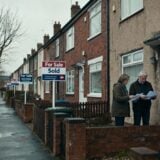House prices in the UK increased by 3.3% in the three months to July against the same period a year earlier with the average house price rising to hit a new record of £230,280, the latest index shows.
On a monthly basis, prices rose by 1.4% in July, while in the three month period from May to July prices were 1.3% higher than in the February to April 2018, according to the data from lender the Halifax.
Russell Galley, Halifax managing director, pointed out that with the annual rate of growth rising from 1.8% in June to 3.3% in July, it was the largest increase since last November.
‘However, while the quarterly and annual rates of house price growth have improved, housing activity remains soft. Despite the recent modest improvement in mortgage approvals, the latest survey data for new buyer enquiries and agreed sales suggest that approvals will remain broadly flat until the end of the year,’ he said.
‘In contrast, the labour market remains robust, with the numbers of people in employment rising by 137,000 in the three months to May with much of the job creation driven by a rise in full-time employment. Pressures on household finances are also easing as growth in average earnings continues to rise at a faster rate than consumer prices. With regards to the recent rise in the Bank of England Base Rate, we do not anticipate that this will have a significant effect on either mortgage affordability or transaction volumes,’ he added.
According to Russell Quirk, chief executive of Emoov, while lender data can conceal regional idiosyncrasies, the current trajectory of the UK property market is one that favours both existing and aspiring home owners.
‘In fact, this could be described as house price growth utopia as any news of an overly excessive increase is criticised as bad for home buyers, while a fall is met with toxicity by those that already own a home,’ he said.
‘Many usual voices will be quick to highlight a lacklustre property landscape, but the highest increase in prices since November speaks for itself and is still palatable, if not absolutely ideal for both camps. Prices are up annually and while a slightly weary market hasn’t narrowed the unaffordability gap over the last year or two, it has at least stalled it from widening somewhat,’ he added.
Andy Solomon, head of business growth at Yomdel, believes that a healthy amount of equity in the UK’s housing stock is essential to help drive the economy but interest rate rises could cool the market.
This upward shift in prices has undone much of the damage of recent months, according to Lee James Pendleton, director of independent estate agents James Pendleton. He pointed out that annual price growth had failed to keep pace with inflation in every month this year bar March.
‘Buyers were seemingly happy to shrug off the possibility of a looming rate hike as buyer incentives and low supply continue to play the dominant role in charging up the market. The market still needs a healthier flow of transactions so it would be better for the numbers of homes changing hands to grow faster than prices,’ he said.
‘However, it is these demand side incentives such as the Help To Buy Scheme and stamp duty relief for first time buyers that appear to have the upper hand over rates and Brexit when it comes to winning the battle of sentiment that is playing out in people’s minds,’ he added.






